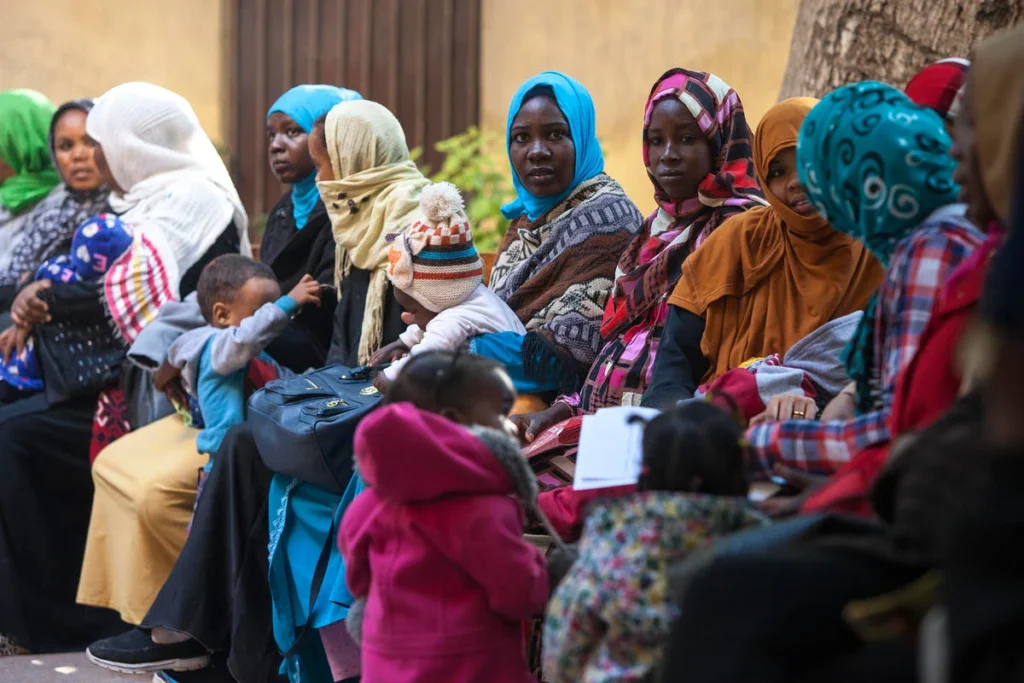Tens of thousands of refugee and asylum-seeking children in Egypt are out of school, in many cases due to significant bureaucratic registration barriers and a lack of free, publicly available education, Human Rights Watch said today. The authorities should immediately remove the barriers keeping refugee and asylum-seeking children out of school, and international partners should urgently support humanitarian funding for education for refugees in Egypt.
The Egyptian government requires proof of residency as a prerequisite to enroll in public schools, an impossible hurdle for many refugee and asylum-seeking families. Amid Egypt’s deteriorating economic crisis, fees, including for school enrollment and transportation, are also a barrier. At school, some children face bullying, abuse, and discriminatory practices from other students and teachers, further deterring enrollment or leading students to drop out.
“Many refugee and asylum-seeking children in Egypt have found the school doors firmly shut, depriving tens of thousands of their fundamental right to education,” said Bassam Khawaja, deputy Middle East and North Africa director at Human Rights Watch. “Egyptian authorities should ensure that all children have access to free, public primary and secondary education, regardless of their legal status.”
As of November 2024, Egypt hosts 834,000 refugees and asylum seekers registered with the United Nations Refugee Agency (UNHCR). This is more than double the number from a year earlier, and the real number is most likely much higher, with the Egyptian government estimating that 1.2 million people have fled Sudan to Egypt.
The United Nations Children’s Fund (UNICEF) estimates that there are 246,000 school-age refugee and asylum-seeking children in Egypt, approximately half of whom were out of school as of October. A recent assessment found that nine thousand children arrive every month and approximately half of those recently arrived were out of school. These numbers do not include the estimated 100,000 Palestinian refugees who have crossed into Egypt from Gaza in the past year and who do not register with UNHCR. According to a diplomatic source in Cairo, the vast majority have not been able to secure legal residency or enroll in public schools.
“All children are receiving education except mine. One of my sons drew a picture of his school in Sudan, reflecting on his memories,” said a Sudanese father unable to register his children in school.
Egypt’s 1981 education law guarantees the right to free education for “citizens.” The government should amend the law to encompass all children in the country, including refugees, Human Rights Watch said. School enrollment for non-Egyptians is regulated by Education Ministerial Decree 284 of 2014, which allows them to enroll in private schools but generally curtails their access to public schools, except for nationals of Sudan, Libya, Saudi Arabia, and Jordan who hold residency permits. The decree does not otherwise grant access to public schools for refugees except for students who receive scholarships from UNHCR.
A November 2023 ministerial directive amending the 2014 decree permits refugees to “exceptionally” enroll in public schools. According to UNHCR, access to public education “on equal footing to Egyptians” is currently only available to nationals of Sudan, South Sudan, Yemen, and Syria. UNHCR does not provide a legal basis for the restriction to those nationalities.
The Egyptian government fails to fully guarantee free education, since public schools charge fees for both Egyptians and non-Egyptians. Some categories of students are exempt, but not refugee or asylum-seeking students.





